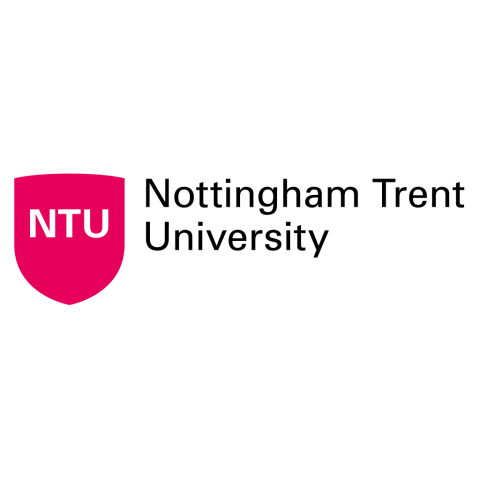
The library’s role in reducing the attainment gap
Read about strategies aimed at closing attainment gaps, such as peer mentoring, inclusive resources and academic skills training to support students
There has been a rise in the number of students accessing higher education with vocational rather than academic qualifications in England, and students following a vocational route into university are more likely to achieve lower grades than their A-level counterparts. In response, we have developed a range of Success for All initiatives aimed at increasing access, participation and success at university, including:
• A student mentor scheme
• A campaign to diversify library collections
• A learning room dedicated to enhancing good academic practice.
The aim of these interventions is to reduce attainment gaps for under-represented groups and for groups where gaps exist.
The power of peer support
Student mentors form an integral part of a university’s workforce. Experts by experience, student mentors offer support as both an equal and a role model. In fostering confidence among students and reducing the risk of non-continuation, the potential of the peer-to-peer relationship is invaluable.
Our library recruits 20 library student mentors annually, forming a cohort that reflects the diversity of our student body to promote inclusion. The library student mentor role involves:
• In-person and online skills-building sessions
• Drop-ins for quick or last-minute queries
• Knowledge boosters (confidence-boosting schemes offered to international, foundation and mature students, tailored to their skills needs)
• Representing the library at university events
• Co-delivery of teaching and promotional activities alongside library staff.
The success of the scheme is unquestionable, both in terms of the enthusiasm and professionalism of our student colleagues and student satisfaction with support, as evidenced by feedback from students such as: “I liked having a one-to-one with someone who has been in the same position as me. I felt like the content was more directed to me as a person”.
Library student mentors represent and support our Success for All students more authentically than their staff counterparts can, strengthening the provision of our skills support, which is increasingly in demand.
- Spotlight guide: How to build belonging at your institution
- Partner with your students to build belonging on campus
- Belonging: why it is the next step on the equity, diversity and inclusion ladder
Decolonising collections
Decolonisation has been a real focus for universities over the past few years, with research by Nona McDuff, John Tatum, Owen Beacock and Fiona Ross suggesting that the “whiteness” of the curriculum contributes to the white/BAME attainment gap. To address this, we have diversified our library collection, providing a broader range of perspectives for the university community.
Moving away from a Euro-American framework to reflect a world view of knowledge, to date we have purchased more than 13,000 new titles to expand resources for black, disability, gender and sexuality studies. However, decolonisation by nature is about collaboration with students, so it is important to include their suggestions.
Interventions that focus on decolonisation are best undertaken in support of wider initiatives across the institution, such as our Hidden Voices campaign, launched in January 2023, designed to find and highlight the unsung heroes in different subject areas. Staff and students are invited to share articles and books they have read, written by authors from historically marginalised backgrounds, defined as groups of people who have experienced discrimination and exclusion because of race, disability, sexuality and/or gender as a result of various social, political and economic factors.
Considering better representation of student perspectives and histories facilitates belonging and engagement and helps reduce the attainment gap.
Promotion of academic integrity
Ensuring students understand academic integrity is vital. Our students are now introduced to it via library-created content, such as resources promoting ethical use of generative artificial intelligence, critical thinking and guidance on citing and referencing in a range of styles. These are now accompanied by a compulsory assessment delivered via a central virtual learning environment module, developed to replace the little-used school-based resources.
Often school-based resources lacking academic investment neither meet university policy aims nor help reduce cases of academic irregularity. Highlighting them to the policy owners (in our case the Centre for Academic Development and Quality) and presenting a business case for our proposed changes enabled us to get them on side.
Focusing on the benefits to both staff and students, including reduced workload and fewer cases of poor academic practice, encourages buy-in. Academic staff are busy people, so offering to take a significant task off their hands is a relatively easy sell. Simplifying access to mandatory, core information for students is another major selling point.
We saw a 245 per cent increase in successful completion of our plagiarism assessment in the first year. Highlighting this success raises the library’s profile in terms of teaching and policy delivery, paving the way for other collaborations.
Using a whole university approach and fostering strong partnerships in schools is enabling the development of some of the most vulnerable students at our institution. Provide a safe space for students in a mentoring relationship, amplify voices that reflect a diverse body of students and encourage students to adopt academic conventions from the earliest stage of their studies - these are some of the strategies that will drive success.
Sarah Johnson is academic engagement team manager; Rosanna Radford, Vandana Sarma and Angela Donaldson are learning and teaching consultants (academic engagement team) at Nottingham Trent University.
If you’d like advice and insight from academics and university staff delivered direct to your inbox each week, sign up for the Campus newsletter.



